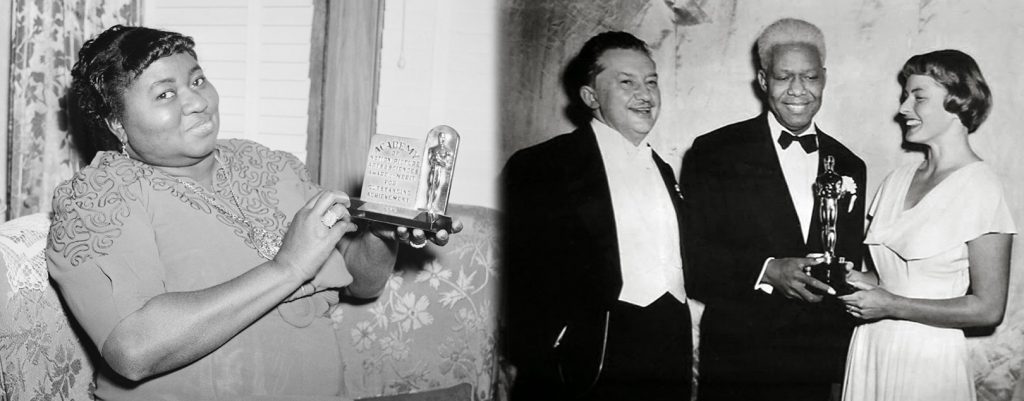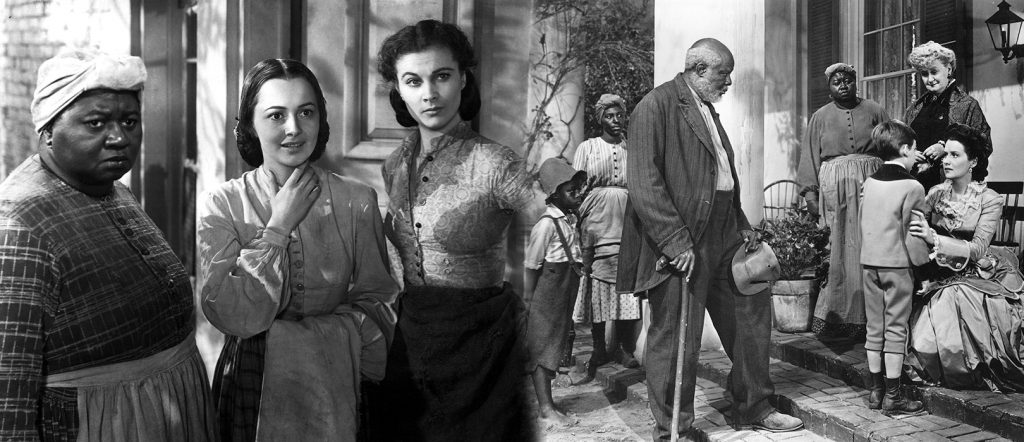
David O. Selznick’s 1939 film Gone with the Wind, which won 8 Academy Awards, received attention in the media recently when HBO Max withdrew the film from its line-up temporarily in order to add an introduction explaining historical context to the film. The decision was explained by a spokesperson for HBO Max:
“‘Gone With the Wind’ is a product of its time and depicts some of the ethnic and racial prejudices that have, unfortunately, been commonplace in American society,” the statement read. “These racist depictions were wrong then and are wrong today, and we felt that to keep this title up without an explanation and a denouncement of those depictions would be irresponsible.”
“These depictions are certainly counter to WarnerMedia’s values, so when we return the film to HBO Max, it will return with a discussion of its historical context and a denouncement of those very depictions but will be presented as it was originally created because to do otherwise would be the same as claiming these prejudices never existed. If we are to create a more just, equitable, and inclusive future, we must first acknowledge and understand our history.”
https://www.foxnews.com/entertainment/warnermedia-chief-bob-greenblatt-defends-hbo-max-decision-pull-gone-with-the-wind
The added introduction for Gone with the Wind will be provided by Jacqueline Stewart. Jacqueline is a professor at the University of Chicago, where she is Director of the Arts + Public Life in the Department of Cinema and Media Studies. She is also the host of “Silent Sunday Nights” on Turner Classic Movies (TCM). Jacqueline is the author of “Migrating to the Movies: Cinema and Black Urban Modernity” and co-editor of “L.A. Rebellion: Creating a New Black Cinema.”
“HBO Max will bring “Gone with The Wind” back to its line-up, and when it appears, I will provide an introduction placing the film in its multiple historical contexts. For me, this is an opportunity to think about what classic films can teach us. Right now, people are turning to movies for racial re-education, and the top-selling books on Amazon are about anti-racism and racial inequality. If people are really doing their homework, we may be poised to have our most informed, honest and productive national conversations yet about Black lives on screen and off.”
https://www.cnn.com/2020/06/12/opinions/gone-with-the-wind-illuminates-white-supremacy-stewart/index.html

Walt Disney’s “classic” Song of the South (1946) has often been compared to Gone with the Wind (1939) for several reasons:
- They are both Academy Award winning films set in the Old South
- Hattie McDaniel had roles in both films
- Both films had their premiere in Atlanta, Georgia (and the African American actors & actresses from both films were not allowed to attend due to Jim Crow laws)
- Hattie McDaniel (Mammy in Gone with the Wind) was the first African American woman to win an Oscar, and James Baskett (Uncle Remus in Song of the South) was the first African American man to win an Oscar.
However, the films have their differences as well:
- Gone with the Wind depicts the antebellum South, while Song of the South is set in the Reconstruction era/postbellum South (after the abolition of slavery), though the film is ambiguous on this fact.
- Song of the South was marketed as a musical drama with animated sequences, while Gone with the Wind was an epic romantic drama.
Over the years, a similar treatment for Song of the South has been discussed many times, but has never come to pass. The first such discussion occurred in the early 2000s, when James Earl Jones was rumored to provide an introduction for the movie (which later turned out to be narration for the 2002 Disney’s American Legends). Since then, several individuals have shown their support for releasing and discussing Song of the South, including Disney Legends Whoopi Goldberg and Floyd Norman, film historian Leonard Maltin, several members of the Disney family, and relatives of the film’s actors. Despite this, Disney CEO and Chairman Robert Iger has kept the movie unavailable, most recently stating that the film would not be available on Disney+.
I sincerely hope that Disney leadership takes notice of Jacqueline Stewart’s initiative and considers doing the same for Song of the South. I have always believed that censorship is not the answer—by withholding this film from the public rather than addressing it, Disney is burying history and, I feel, does a great disservice to everyone who was involved in creating the film. For better or for worse, the movie was made and we need to be able to learn from our past.